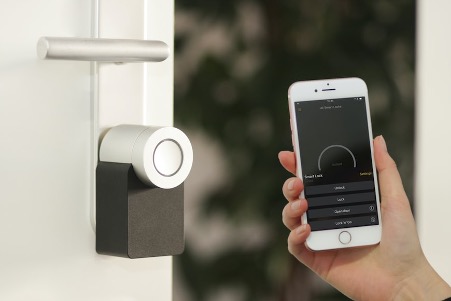Today it is quite difficult to imagine our life without technology solutions. Technologies are all around us, facilitating and streamlining multiple processes in our private and business life. Many industries have been greatly changed under the influence of new tech developments and software products which helped to bring the level of provided services and the quality of offerings to a completely new level. And if we need to name one of the key technologies that have the greatest impact on the business world, it will be definitely the Internet of Things.
IoT provides the possibility to connect a wide range of different devices into a single network for efficient data and request exchange. IoT systems allow users to get access to the most relevant info in real-time, operate various devices remotely, and fully automate a lot of tasks.
In this article, we offer you to have a look at the modern trends in IoT app development and analyze the tendencies that will shape the future of this technology.
Table of Contents
AIoT
One of the most promising and potentially highly beneficial trends is the combination of possibilities provided by Artificial Intelligence tools and IoT solutions. AI is greatly powered by huge volumes of data and IoT systems can become a great source of the data that is required for ML tools. How can the data from smart sensors be used? One of the brightest use cases that we can use to demonstrate the benefits of AI and IoT collaboration is so-called predictive maintenance. For example, if you install smart sensors for monitoring the state of your equipment, AI-powered solutions will be able to predict when maintenance services will be required in the future.
Wearable devices
The role of wearables in IoT solutions is continuously growing. Among the most promising devices that are expected to be implemented in many advanced solutions already in the nearest future, it’s worth mentioning earbuds, smart bands, smartwatches, and even AR and VR headsets that haven’t reached mass adoption yet.
Though some years ago, it was expected that one day smartwatches will fully replace smartphones and even desktop computers, today it has become obvious that this prediction won’t come true, at least in the nearest future. However, such devices can efficiently complement the functionality of mobile phones and computers in our everyday processes and tasks.
Nevertheless, IoT-powered wearables have managed to occupy a very important place in the healthcare industry where they are used for measuring and tracking patients’ vital parameters (like temperature, blood pressure, heart rate, etc.). These parameters are of great importance in monitoring patients’ states, evaluating the effectiveness of treatment, and increasing the accuracy of diagnosis.
Connected networks in manufacturing
IoT systems are widely used in the manufacturing industry. Thanks to the Internet of Things, enterprises can greatly (practically fully) automate their processes which brings a wide range of benefits to them, including reduced operating costs and increased productivity. And once again, here we can observe a symbiosis of AI and IoT. Thanks to this combination, such solutions as digital twins, generative design, and defect detection have become possible.
Advanced connectivity
One of the crucial aspects of each IoT solution is connectivity. Today, developers have the possibility to use advanced technologies such as 5G, satellites, LPWAN, and WiFi 6.
5G networks are much faster than the widely adopted 4G LTE which is restricted by bandwidth. With the use of 5G, it is possible to ensure a more efficient data exchange and processing and that’s exactly what is needed for building reliable IoT apps.
In some IoT systems, geolocation tracking plays a very important role and in such cases, it is necessary to build functionality for stable location monitoring. One of the best variants that can be used today is GPS information received from the network of satellites. Though there can be some issues with indoor GPS-powered location tracking, outdoors it works perfectly.
LPWAN (low-power wide-area network) connectivity is used for uniting low-bandwidth devices. This type of connectivity is an excellent choice when you have a lot of devices located within large areas. It is a cost-and energy-efficient solution that demonstrates the highest levels of stability.
For indoor connectivity, it is recommended to use WiFi capacities, especially 6 GHz-band WiFi networks today can ensure fast connection without interruptions.
Smart homes and smart enterprises
Smart home solutions today are much more than security systems for your residential properties. Such systems allow users not only to protect their houses or offices but also to make the environment there as comfortable as possible. You can install various smart sensors that will monitor such parameters as temperature, air humidity, lighting, etc. Based on the received data, smart devices can perform various tasks. For example, when your system detects that it is too dark in your room, it will switch on your lamp, or when the temperature becomes too high, a conditioning system will be turned on automatically.
The future of the Internet of Things is expected to be shaped around the mentioned trends within multiple industries. In any case, it is crucial to bear in mind that IoT is a technology that can evolve only in combination with others, like AI and ML, as only together they ensure the expected results and help to create really innovative and cutting-edge solutions that will bring real value to you and your business.




